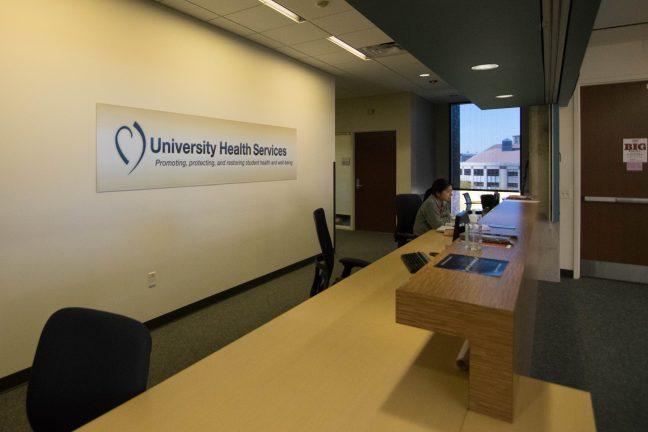This month, students on the University of Wisconsin campus are being invited to reflect on their relationship with nicotine and explore resources on and off campus that can help them quit. The theme of the month, organized by University Health Services, is “A no to nicotine is a yes to yourself.”
A 2021 National College Health Assessment survey found almost one in three undergraduate students and one in seven graduate and professional students have used tobacco or nicotine products at least once, with most of this use being through vaping or oral nicotine, according to UHS.
UHS received a portion of the $14.7 million being paid to Wisconsin in settlement funds from a class action lawsuit involving Juul, UHS assistant director for high-risk drinking prevention Jenny Damask said. Under the settlement, payments can be made over five to 10 years, and must be used to fund efforts to help people quit vaping, according to the UW Center for Tobacco Research and Intervention. The target age demographic for these vaping prevention efforts is individuals aged 18 to 24, according to CTRI.
Receiving funding pushed UHS staff to look more closely at rates of vaping on campus, Damask said. Statistics showed the number of undergraduate students using nicotine or tobacco products has increased significantly since before the rise of vaping. Previously, rates of undergraduate students using nicotine or tobacco products had remained low once usage of combustible cigarettes had decreased, Damask said.
The long-term effects of the use of vaping products remain unknown, but the impacts of nicotine and tobacco usage include disturbed sleep, higher rates of anxiety and nausea. The use of nicotine and tobacco products can impact an individual’s lungs, heart and brain specifically, Damask said.
As part of programming during UHS’ No Nicotine November, the UW campus will participate in the American Cancer Society’s 47-year-old campaign, the Great American Smokeout. The campaign takes place every year on the third Thursday of November, encouraging individuals to start their journey toward a smoke-free life, according to the American Cancer Society. Thursday, Nov. 16, a display will be set up on Bascom Hill to serve as a reminder for everything individuals are saying yes to when stopping nicotine usage.
Throughout the month, UHS staff will also be distributing “quit kits” at tabling events at campus libraries, flu shot clinics and Rec Well facilities, according to UHS. The kits contain small things that may help individuals in the process of stopping nicotine usage — including flavored toothpicks, fidget toys, journals and candy, Damask said.
No Nicotine November is ultimately encouraging students to begin thinking about long-term plans surrounding nicotine usage — whether this includes stopping usage or not, Damask said.
UHS offers no-cost, confidential quitting support for students, including individual counseling for those wanting to assess their current use and discuss strategies for quitting nicotine, tobacco and vape products, Damask said.
“Everyone’s different, so if something doesn’t help, we certainly have an array of services,” Damask said. “Students can come to UHS and get nicotine cessation services, they can meet with somebody and make a plan that works for them.”
These services may include behavioral strategies, nicotine replacement products and/or medication assistance, Damask said.
Damask said organizing programming for the month has “opened the door” for UHS to continue to work on initiatives to reduce nicotine and tobacco use among students, and to review the campus smoke-free policy.
“It’s always a goal of ours to work in this area,” Damask said. “We’re really hoping it’s a catalyst for further work in the area.”
Resources regarding stopping nicotine usage:
- Students can schedule an appointment through UHS by calling (608) 265-5600
- View options available on and off campus through UHS’s Quitting Nicotine webpage.
- UW’s Center for Tobacco Research and Intervention provides a free service to help people quit smoking, vaping or other tobacco use through the Wisconsin Tobacco Quit Line. Call 800-QUIT-NOW.
- This is Quitting Text Line is a free and anonymous text messaging program from Truth Initiative designed to help young people quit vaping. Text DITCHVAPE to 88709.



